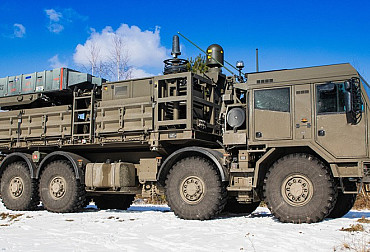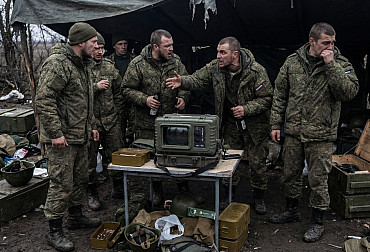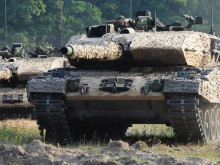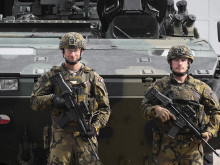Communist Populism Seeking Savings in the Defence Budget Is Threatening the Security of the State
The Communist Party of Bohemia and Moravia, with falling preferences and the poor result of the last elections, is grasping at the straws and tries to gain influence by using emotions. Its experts calculated that the Defence could do without ten billion crowns, which is the amount that the Communists would like to deprive the army of in the current situation. Their proposal is unacceptable out of principle, but also and especially in the context of the ongoing modernization processes of the army, which we can compare with Polish or Hungarian allies. The government of Andrej Babiš is facing a key battle in this matter.
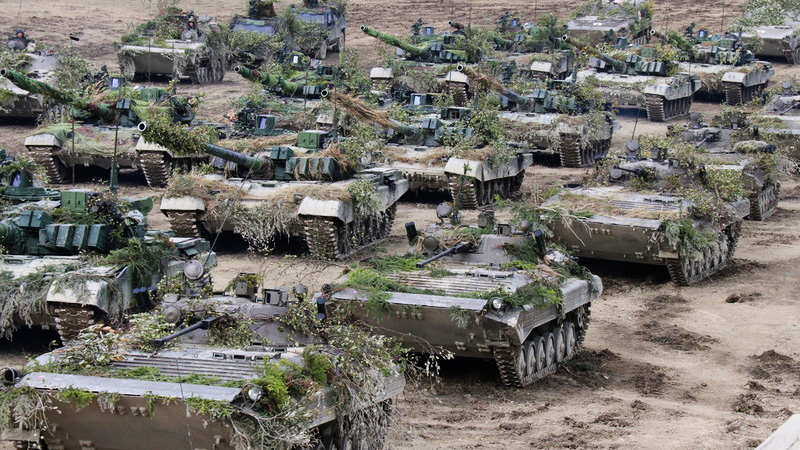
Picture: The proposal of the Communist Party of Bohemia and Moravia is unacceptable out of principle, but also and especially in the context of the ongoing modernization processes of the army, which we can compare with Polish or Hungarian allies. (illustrative photo) | army.cz
At the end of September, the Polish government presented the draft of the state budget for 2021. It counts on a deficit of over 80 billion zloty (about 500 billion crowns). But after this year’s decline, it expects not only GDP growth of 4 %, but also further growth in defence spending, to the expected level of 2.2 % of GDP. The Hungarian parliament approved the 2021 budget in July. For 2021, it estimates GDP growth at 4.8 %. And we observed an unprecedented increase in defence spending by 30 % to a total of HUF 778 billion (less than 60 billion CZK), which should reach the level of 1.66 % next year and reach the 2 % limit in 2023.
Both the Polish and Hungarian armies are undergoing very intensive modernization processes. These countries, which are slightly poorer per capita than the Czech Republic, are increasing their defence spending (Poland above 2 % of NATO’s commitment) and are successfully and rapidly purchasing modern technology to replace obsolete technology from the time of the Warsaw Pact (for example, the Hungarian acquisition of 44 Leopard 2A7HU tanks), filling the existing armaments gaps (agreement with Rheinmetall on the production of tracked IFV LYNX in Hungary), modernizing existing armaments (for example, the Polish F-16).
And what can we see here in the Czech Republic? The acquisitions for the army have been significantly slower and often postponed, although in recent years a number of important orders have been completed, now also the proposals by populist communists (or communist populists) to reduce the defence budget by ten billion crowns are slowing everything down. Let’s forge our tanks into ploughs. Regardless of the state of the armed forces and their needs, regardless of the international security situation in the world and its uncertain prospects, regardless of the Central European context. Regardless the considerable internal debt of the armed forces, which until recently were struggling with the echoes of the last economic crisis. Regardless, ultimately, the blow that the Communists would inflict, “in the name of world peace”, on the domestic defence industry, among other things, with all the consequences and long-term side effects.
The government of Andrej Babiš has not been able to do well in substantial issues without tolerance on the part of the Communist Party. And because we can hardly expect the democratic opposition parties to approve the budget for the government, the Communist Party has relatively considerable “extortion” potential in this regard. Unfortunately for the Army of the Czech Republic, the Communist Party also remembered the defence expenses. Minister Metnar and Prime Minister Babiš thus face a very important task: to defend the course set in the field of defence in the opposite direction from the communist proposal, and to support the further increase of the still grossly underestimated defence spending. A key battle awaits in the budget negotiations. In the political situation that the government has established itself in the long run, it will be a matter of balancing on a knife-edge in which, in general, the security of the country will be much more important than the fate of the government.
In the draft of the state budget, which is subject to strict criticism from economists because it does not take into account the consequences of the current economic downturn caused by the government fighting the pandemic, defence spending is rising. And the Ministry and the military still officially expect to reach a 2% share of GDP in 2024. The internal debt of the armed forces is considerable due to the drastic cuts from previous years, delays and postponement of modernization projects. Soldiers are using obsolete technology. The image of the Czech Republic is not flattering in comparison with Poland or Hungary, whose governments, in addition to pleasing statements, are also in a no less pleasing way taking action in the field of military acquisitions. And the efforts of the army to start the modernizations are being tripped up by the pro-government communist opposition, which is trying to save its declining attractiveness for a certain part of the electorate, and quite possibly to harm the Czech lands for the last time.
Both the Ministry of Defence and the Czech Armed Forces argue against efforts to reduce the defence budget by the fact that the army is deployed in current measures against the pandemic, in which soldiers support hospital staff, nursing homes, build hospitals, support rescue services, transport necessary equipment, and perform many other tasks. They are seen. To words of thanks they only respond: “That is what we are here for.” This should be borne in mind by all "fighters for peace" who believe that the state should give priority to areas other than security provided by the development of the armed forces. The army is here for times of crisis, and it must be supported even in relatively quiet times. When it is be too late, no one will conjure up modern equipment and qualified service out of thin air. We maintain and develop the army for bad times, when we expect it to help us with a solution. The approach “we will give you modern armaments when we are rich and have no other worries” is reprehensible and even childish. Let us follow the good example of Poland and Hungary, and wish, regardless of political preferences, the government to be able to counter populist efforts to reduce the defence budget.











